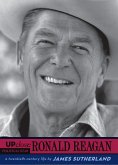The analysis begins with Carter's upbringing in Plains, Georgia, where his family values and Christian faith shaped his worldview. His early political career in Georgia, particularly his time as governor, set the stage for his rise to the presidency. Carter's campaign emphasized honesty, integrity, and a break from the political corruption of the Watergate era, positioning him as an outsider ready to bring change to Washington.
The book examines the major events and policies of Carter's presidency, focusing on his handling of domestic issues like stagflation, the energy crisis, and healthcare reform, as well as his foreign policy achievements and challenges. These include the landmark Camp David Accords, which brought peace between Egypt and Israel, and his commitment to promoting human rights worldwide. However, Carter's presidency was also marked by significant difficulties, such as the Iran Hostage Crisis and economic struggles, which contributed to his defeat in the 1980 election.
Carter's post-presidential years, however, are widely regarded as some of the most successful and impactful in modern history. Through The Carter Center, he became a leading figure in global health initiatives, conflict resolution, and the promotion of democracy and human rights. His work helped nearly eradicate Guinea worm disease, monitored over 100 elections in emerging democracies, and mediated peace in conflict zones worldwide. His dedication to these causes earned him the Nobel Peace Prize in 2002, further cementing his global legacy.
The book concludes by assessing Carter's legacy in both the national and international contexts, recognizing him as a model for future leaders, particularly in his post-presidency. His unique blend of moral leadership, humility, and global humanitarianism has redefined the role of a former president and left an indelible mark on history.
This comprehensive examination of Carter's life highlights his enduring influence on American politics, global diplomacy, and humanitarian efforts, offering a nuanced perspective on a leader whose legacy continues to inspire.
Dieser Download kann aus rechtlichen Gründen nur mit Rechnungsadresse in A, B, CY, CZ, D, DK, EW, E, FIN, F, GR, H, IRL, I, LT, L, LR, M, NL, PL, P, R, S, SLO, SK ausgeliefert werden.









